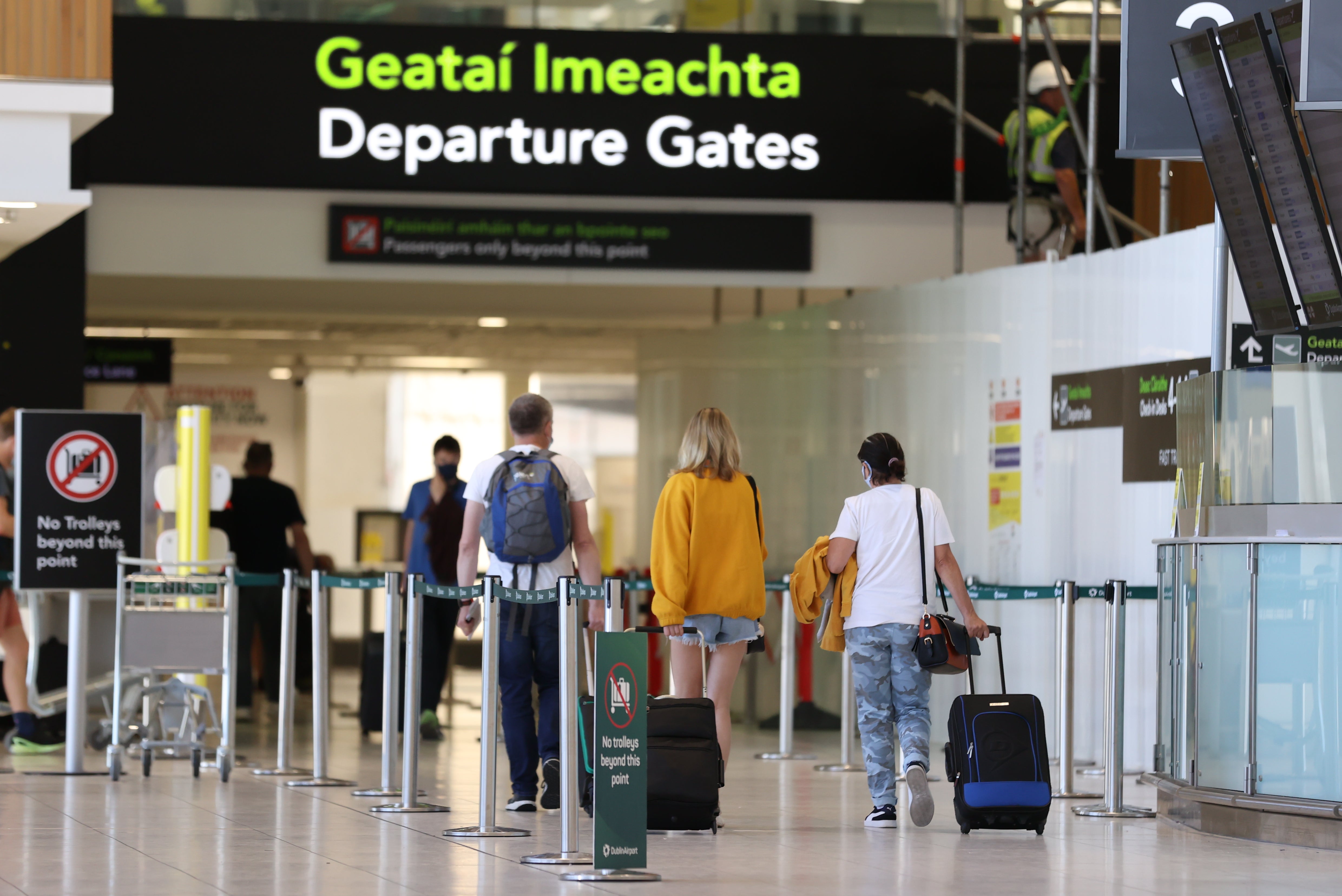Irish citizens advised to avoid non-essential travel to Ukraine
Mr Martin said that Russian military navy exercises off the Irish coast are ‘not welcome’.

Irish citizens are being advised to avoid non-essential travel to Ukraine it was announced.
Irish premier Micheal Martin said on Tuesday the advice comes in light of ongoing tensions at the Eastern European country’s border with Russia.
He also said planned Russian navy exercises off the Irish coast are “not welcome”.
Reiterating comments made by Minister for Foreign Affairs Simon Coveney the taoiseach told the Dail: “Holding military exercises in international waters off our coast is not welcome. And there is an ecological issue here.”
The Russian artillery drills, at the start of February, will take place in international waters but within Irish-controlled airspace and the country’s exclusive economic zone (EEZ).
On Monday, the Russian ambassador to Ireland dismissed the plans as a “non-story”.
Yury Filatov downplayed the significance of the exercises after concerns were raised by the Irish Government.
Mr Martin rejected his suggestion such training exercises are a “regular occurrence”.
Mr Martin, answering several questions from TDs about the tensions, said: “Ireland accepts Ukrainian territorial integrity.
“Our principles in approach to the Russian-Ukrainian situation is accepting and, of course, adhering to that fundamental rules-based international order.
“We want diplomatic resolution to this. We want this de-escalated. We don’t believe it necessitates the massing of so many hundreds of thousands of troops.
“It doesn’t necessitate a war or invasion or the violation of Ukrainian territorial integrity.
“I think the world would breathe a collective sigh of relief because the world is trying to come through Covid-19 and all its implications and now, to go through another crisis, which could occur as a result of an invasion, I think would be very, very difficult for the world as a whole to deal with.”
People Before Profit TD Richard Boyd Barrett told the Dail Russian president Vladimir Putin is a “thug and an autocrat”.
However, he asked: “Of course we should condemn what Russia are doing, but why is there no condemnation, from a country that is supposed to be neutral, about a clear agenda by Nato to expand eastwards and to escalate military tensions with Russia?”
Mr Martin rejected the claim.
“I don’t think Nato is being aggressive here,” he said.
Earlier, fishermen who plan to peacefully disrupt Russia’s military exercises off Ireland were warned not to put themselves at risk.
Patrick Murphy, chief executive of the Irish South and West Fish Producers Organisation, said some of its members plan to hold a protest.
He described the area of the exercises as “very important” for fishing and said members want to protect biodiversity.
When asked about the fishermen’s plans, Tanaiste Leo Varadkar said on Tuesday: “I haven’t had the chance to speak to any of the fishermen operating in that area.
“I suppose I would just say to them that these are military vessels. Whatever they choose to do in terms of any protests, just make sure that they don’t put themselves at risk.”
Mr Varadkar said Ireland is powerless to stop the exercises.
“But we have made it very clear that these exercises are not welcome, particularly in the current context, when tensions are rising in relation to Ukraine,” he added.
“That’s being communicated to them very strongly. There are no plans to send Irish troops to Ukraine. That hasn’t been discussed.”
Mr Varadkar said the Cabinet received a comprehensive briefing from Mr Coveney over fears Russia will invade Ukraine.
“It is very serious. There is a real fear that we could see a land war on the continent of Europe,” the Fine Gael leader added.
“We haven’t seen that for a very long time.
The Russian exercises off the coast of Cork and Kerry, while not illegal, are not welcome
“Aside from the humanitarian impact, it could have an impact on us economically as well.
“We got a comprehensive briefing on that today. We’re co-ordinating our response, of course, with our European partners and our UN partners.
“The Russian exercises off the coast of Cork and Kerry, while not illegal, are not welcome.
“We don’t believe that they’re connected to the events in Russia and Ukraine but we certainly would prefer that they were not happening.”
In compliance with legal requirements, Russia informed Ireland’s aviation authorities of the planned activities in advance.
The Irish Aviation Authority (IAA) said there would be no impact on the safety of civil aircraft operations.
On Tuesday evening, Mr Coveney warned that the situation was “enormously serious”.
“The tension between Russia and Ukraine, the threat of invasion of Ukraine, is something that the EU, the US and the UK are all taking incredibly seriously.
“This could be the first land war in Europe that we’ve seen for many decades,” he warned.
“It could result in an enormous loss of life, and of course, extraordinary disruption right across the continent of Europe.
“And that is why Ireland has consistently been talking about the need to defuse tension, to focus on diplomacy and political dialogue, as opposed to military build-up and we will continue to be that voice.”
He told RTE’s Six One that the EU was “unified” on the deterrent needed to avert a Russian invasion.
He said: “Because should they do that I think the response, from the sanctions perspective coming from the European Union, would be very, very comprehensive going way beyond anything we’ve done in recent times.”
Bookmark popover
Removed from bookmarks